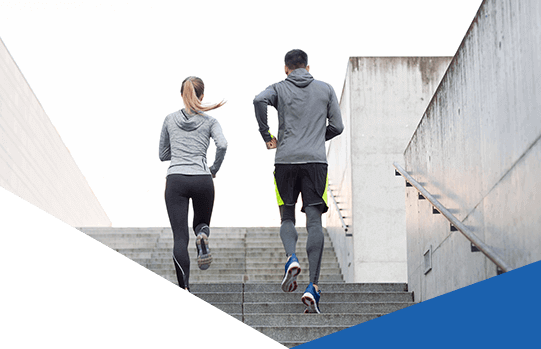In more recent years we – the public – have become more aware of what concussions are and the impact they have on people. You may have once only associated concussions with sport: a 200-pound football player getting hit by a 300-pound football player, or a hockey player getting checked into the boards headfirst going 40 kilometers per hour.
However, we now know that concussions do not only occur in high-level athletes and that motor vehicle accidents and falls are two other major causes of concussions. Before we talk about how physiotherapy can help your recovery from a concussion, let’s define what exactly a concussion is.
What Is A Concussion?
The Centers for Disease Control and Prevention defines a concussion as:
“…a type of traumatic brain injury—or TBI—caused by a bump, blow or jolt to the head or by a hit to the body that causes the head and brain to move rapidly back and forth. This sudden movement can cause the brain to bounce around or twist in the skull, creating chemical changes in the brain and sometimes stretching and damaging brain cells.”
It is important to note that as per the CDC definition of concussion, you do not need to physically hit your head to suffer a concussion. For example, think about a car accident where someone is rear-ended. Because of the abrupt force to the vehicle, the driver’s head will forcefully move backwards and then forwards in a whip-like fashion.
Despite there being no actual direct impact to the head, the brain is “shaken” forcefully inside the skull, potentially resulting in a traumatic brain injury.
How Physiotherapy Can Help
After experiencing a concussion, you can suffer from symptoms that fall under the categories of physical, cognitive, and/or emotional You may find it more difficult to:
- Think clearly
- Multitask
- Find the appropriate words
- Have trouble expressing thoughts
Many people experience headaches, dizziness, nausea, have increased sensitivity to noise or light, and feel more anxious, sad, fatigued, or tearful.
Physiotherapy can help you make sense of your symptoms, and recover faster by giving you concussion-specific education, exercises, and symptoms management strategies. Treatment is based on your unique symptom presentation and can include but is not limited to vestibular rehab, manual therapy, neuromotor retaining, and sensory-motor retraining.
If you or someone you know has suffered a concussion, ask one of our Physiotherapists at Panther Sports Medicine how we can help.





